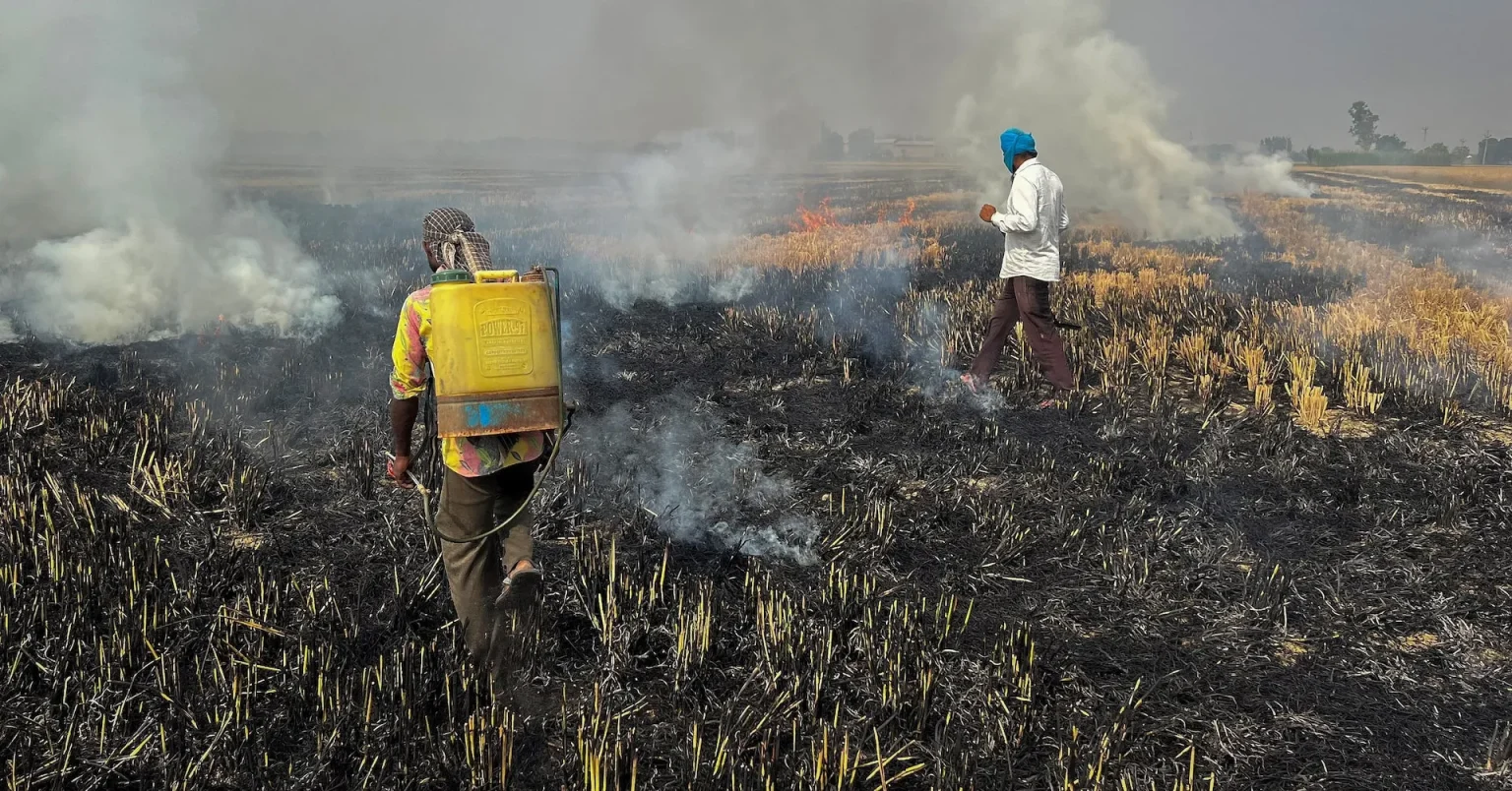FARMERS IN PUNJAB BURN STUBBLE – Say they lack options, as smog blankets Delhi
As the Indian capital New Delhi gasps for breath, hundreds of kilometres away, farmers in the fields of Punjab are torching their farm residue, triggering plumes of smoke in their fields, as they race to get ready for the next sowing season.
Skies in Mansa, Punjab (about 300 km from New Delhi) – bear an orange haze – with clouds of smoke rising from burning rice paddies, highlighting a practice that persists despite years of government crackdowns.
Farm fires in New Delhi’s neighbouring states of Haryana and Punjab are a major source of pollution that is currently engulfing the Indian capital, where the air quality index has been hovering above 400 in the “severe” category.
Government satellite data showed a rise in crop stubble fires, used by farmers to clear land before the next planting, since the start of November. In the past, such fires have been a cause for high pollution in northern India.
Farmers and local officials on the ground say a mix of poor alternatives, entrenched habits, and resource gaps keeps these fires burning, even as the capital 300 km away grapples with “severe” air quality levels.
Deedar Singh, a 46-year-old farmer in Mansa district of Punjab, told reporters that farmers resort to stubble burning out of compulsion rather than choice, saying they do not have the wherewithal to dispose of their farm residue because of lack of funds and machines.

